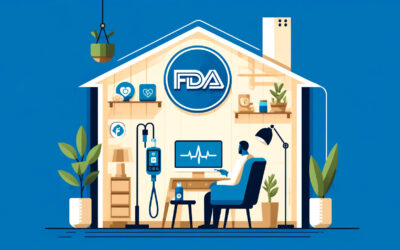Inclusive clinical trials are essential for ensuring that new treatments and medical interventions benefit all populations, particularly those historically underrepresented in research. By addressing barriers such as non-inclusive screening processes and lack of awareness in LGBTQIA+ communities, the FDA is making strides toward more diverse and representative clinical trial cohorts. This commitment to inclusivity will help create safer, more effective treatments that reflect the needs of all individuals, regardless of gender identity or sexual orientation.
Understanding Response Rate vs. Completion Rate: What’s the Difference?
This article will explain the difference between response rate and completion rate, why each matters, and how both can impact the overall data quality of your survey.
Do Laboratory Developed Tests Now Need Premarket Review and FDA Clearance?
Learn about the FDA’s new regulatory changes for Laboratory Developed Tests (LDTs) and how they impact premarket review and authorization. Explore key takeaways and implications for healthcare providers and innovators
How Patient Preferences Shape Medical Device Development: Insights from FDA Draft Guidance
Explore how Patient Preference Information (PPI) impacts medical device development and regulatory submissions, with insights from the FDA’s draft guidance and key benefits for manufacturers.
Expanding Diversity: Beyond Clinical Trials to Human Factors and Label Comprehension
At the end of April 2024, the FDA finalized its rule on Laboratory Developed Tests (LDTs), marking a significant regulatory shift. Labs now face a phased compliance process over four years, adapting to stringent requirements. SoundRocket specializes in human factors and user comprehension studies, essential for FDA submissions. We provide comprehensive support through user and label comprehension studies, simulated use studies, and regulatory guidance. With proven expertise in FDA submission support, SoundRocket ensures your LDTs meet regulatory standards efficiently. Embrace the new regulatory landscape with confidence by partnering with SoundRocket. Visit our services page to learn more.
Insights on the FDA’s Virtual Public Meeting: Home as a Health Care Hub Initiative
At the end of April 2024, the FDA finalized its rule on Laboratory Developed Tests (LDTs), marking a significant regulatory shift. Labs now face a phased compliance process over four years, adapting to stringent requirements. SoundRocket specializes in human factors and user comprehension studies, essential for FDA submissions. We provide comprehensive support through user and label comprehension studies, simulated use studies, and regulatory guidance. With proven expertise in FDA submission support, SoundRocket ensures your LDTs meet regulatory standards efficiently. Embrace the new regulatory landscape with confidence by partnering with SoundRocket. Visit our services page to learn more.
Navigating the New FDA LDT FinalRule with SoundRocket’s Expertise
At the end of April 2024, the FDA finalized its rule on Laboratory Developed Tests (LDTs), marking a significant regulatory shift. Labs now face a phased compliance process over four years, adapting to stringent requirements. SoundRocket specializes in human factors and user comprehension studies, essential for FDA submissions. We provide comprehensive support through user and label comprehension studies, simulated use studies, and regulatory guidance. With proven expertise in FDA submission support, SoundRocket ensures your LDTs meet regulatory standards efficiently. Embrace the new regulatory landscape with confidence by partnering with SoundRocket. Visit our services page to learn more.
Empowering the Home as a Health Care Hub – The Role of User Comprehension Studies
To advance health equity, the FDA has launched the "Home as a Health Care Hub” initiative. This initiative aims to transform the traditional home into a primary setting for health care. This forward-thinking approach recognizes the evolving landscape of medical care,...
Expert advice on designing DTC genetic test reports
There is little published guidance on how to present genetic or genomic results in an understandable way and at an appropriate reading level for a typical consumer.1 Most of the literature on developing genetic test reports for non-experts (i.e., anyone without...









